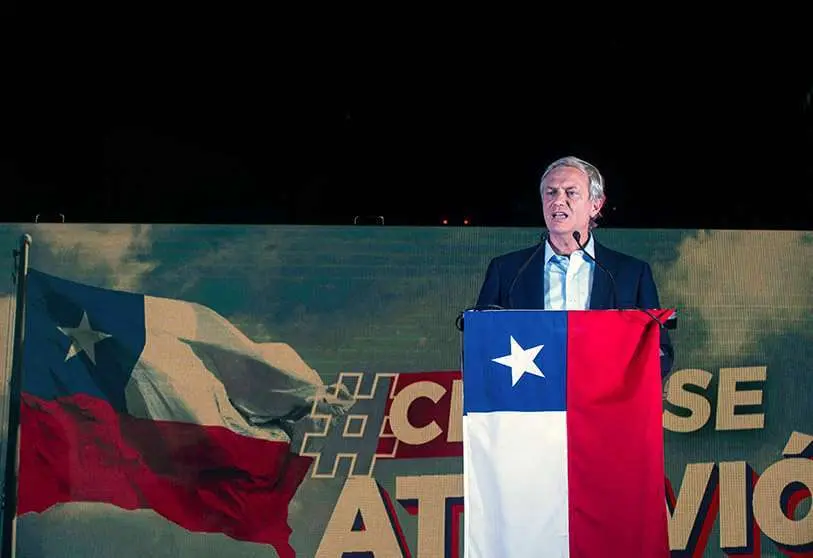Chile sweeps away the centre and enthroned the extremes

A descendant of German emigration after the defeat of Nazism, and another from the Croatian diaspora, a veteran of the student trade union struggle, will compete for the Presidency of Chile on 19 December. Between them, the two of them have won more than 50 per cent of the votes in the first elimination round, although neither of them has surpassed the 30 % threshold, which was the norm for those who would run in the final ballot.
José Antonio Kast's political models are VOX in Spain and Jair Bolsonaro in Brazil. Symmetrically, Gabriel Boric is sympathetic to Podemos and the Latin American Castro-Chavist axis, mainly comprising Cuba, Venezuela and Nicaragua. Two antagonistic electoral programmes, a reflection of a country imprisoned by polarisation, and from which the centre-right and the centre-left have been swept away.
Both Kast and Boric reject the epithet of extreme right or extreme left, respectively, with which they cross brand themselves. Kast, whose figure evidences his Germanic features, bluntly rejects it in any interview: "What am I extreme about? In loving the homeland. In loving the nation and patriotic symbols. In defending my friends. In protecting the entrepreneur. In what am I extreme?" Boric, who defines himself as an ecologist, feminist and regionalist, has the unwavering support of the Communist Party of Chile, which still proclaims its loyalty to Marxism-Leninism, which has led him, among other things, to support the Nicaraguan dictator Daniel Ortega and the imprisonment and murder of his political opponents, carried out by his regime in order to perpetuate itself in power.
Kast has no qualms about declaring that "I will do everything in my power to save Chile from communism". Boric, faithful to the mantras elaborated by advisors linked to Podemos, describes his adversary as a "danger to democracy", at the same time as he foists on him the reincarnation of the dictator Augusto Pinochet, who died fourteen years ago. He was seconded by Álvaro Elizalde, president of the Socialist Party, whose first statement after the results were known was "an appeal to Chileans not to underestimate the threat posed by an extreme right-wing option as the eventual president of our country".
His programme shows many similarities with Spain's Podemos, especially in terms of justifying street violence, escraches of political opponents, disavowal of police actions to prevent hooliganism and, in the economic field, the conviction that there is plenty to share out by taking it away from the rich, while the prior creation of wealth does not appear under any heading of his hypothetical future government.
In the second round, both Kast and Boric will need the support of the swept parties of the centre, which for the first time since the reinstatement of democracy will not be present in the ballot of a presidential election. Gabriel Boric, candidate of the Frente Amplio and the Communist Party, could snatch at least part of the 8% of the votes obtained by the independent social democrat Marco Enríquez-Ominami, and certainly all of the 1.5% obtained by the Maoist Eduardo Artés. It is likely that a good part of the voters of Senator Yasna Provoste, of the DC-PS Coalition (Christian Democracy-Socialist Party) will also go to Boric.
As for José Antonio Kast, he will have to greatly increase his four-point lead from the first round. The bulk of his support will come from the right-wing bloc, whose candidate Sebastián Sichel came in a very modest fifth place, as well as perhaps a part of the votes of Provoste, whose more moderate voters would not welcome his alignment with the candidate of the (extreme) left.
The big question is who the voters will choose in this first round, who have opted for the economist Franco Parisi, resident in the United States, and who has not even made an appearance in Chile because he has not yet resolved a dispute with the tax authorities in his country of origin. Parisi was the big surprise of the elections, coming in third place with almost 14% of the vote. He is described as a libertarian economist, and his programme represented an overcoming of the extreme capitalism of which the outgoing president, Sebastián Piñera, was accused, but without falling into the failed recipes of Peronism in neighbouring Argentina.



